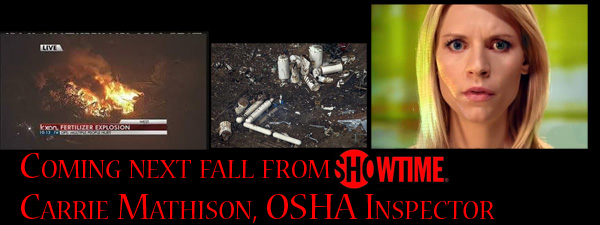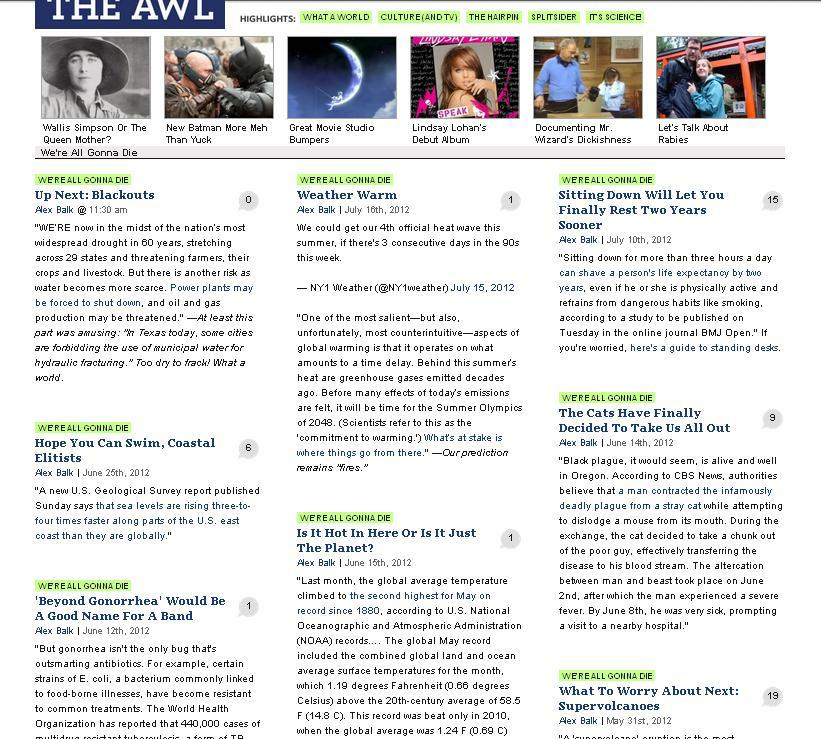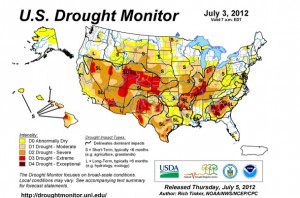
Noam Chomsky and Ron Paul agree on at least one thing: War is a racket.
Juan Cole uses last night’s GOP debate to compare and contrast Paul’s libertarian antiwar position and the left, Chomskyite variation.
As Right anarchists, [Libertarian Republicans] want the least government possible, and see government as a distraction for businesses, who succumb to the temptation to use the government to distort the eufunctional* free market. In essence, government is a scam whereby some companies are seduced by the possibility of manacling the invisible hand that ought to be magically rewarding enterprise and innovation. A significant stream within libertarianism theorizes war as the ultimate in this racket, whereby some companies use government to throw enormous sums to themselves by waging wars abroad and invoking patriotic themes. This analysis is remarkably similar to that of Left anarchists such as Noam Chomsky.
The difference is that for anarcho-syndicalists like Chomsky, the good guys of history are the workers and ordinary folk, whereas for Libertarians, it is entrepreneurs. Both theories depend on a naive reading of social interest. Right anarchists seem not to be able to perceive that without government, corporations would reduce us all to living in company towns on bad wages and would constantly be purveying to us bad banking, tainted food, dangerous drugs, etc.
…. Likewise, the anarcho-syndicalist tradition makes workers unions more saintly and disinterested than they typically actually are, though since they are looking out for the interests of the majority (workers), they typically have more equitable positions than the narrower business elites idolized by Libertarians.
___________
* great word!
This is OK, if simplistic. I might add that Cole is a stubborn defender of America’s and NATO’s latest adventure in Libya, “unabashedly cheering the liberation movement on.” As such, not really the guy to be flinging the word naive about. He even wrote an open letter, scolding the timid left for not getting behind our nation’s noble effort. To date, that mission has amounted to “18,774 sorties including 7,127 strike sorties.” That is a hell of a lot of metal to be slinging in a humanitarian kinetic action, but these are Hellfire rockets of love and concern, of course.
Back to Paul, in her summation of the GOP debate, the always thoughtful Amy Davidson gets a tad wistful when musing on the man’s appeal:
It was a little sad, watching the Republican Presidential debate last night, to remind oneself that at a certain point, next winter or summer or sooner, Ron Paul will no longer be taking part in these exercises. He is not likely to get his party’s nomination; and yet how useful was Paul’s presence in the debate last night? When he was asked a question, one knew, if nothing else, that one’s attention would be held by the answer, whether it’s about allowing churches to harbor undocumented immigrants or, as he seemed to be suggesting, effectively renouncing much of our national debt. His appeal to a certain segment of Republicans (and not just Republicans) is often ascribed to his consistency; just what he is consistent about is a harder question to answer, and anyway doesn’t get at his odd charisma.
These two pieces together start to get at what is so maddening about Paul. On issue after issue, he is coherent, rational, and appealing, especially to someone comme moi, with a vaguely leftish lean, and a strong disgust at the mainstream corporatist politics practiced by both parties.
On a host of issues, Paul’s positions and mine line up pretty well, and probably line up with the attitudes of a great number of uncommitted voters. He is the only high-profile politician seeing straight on war, militarism, civil liberties, and privacy issues.
But then there are the scary positions, anchored by the Libertarian Achilles Heel, the completely untethered-from-reality belief in the magic of Markets. Social Security and Medicare and the EPA are clunky and inefficient, but they are necessary protections against the predations of the marketplace. And they are not the drivers of the deficit. So, Ron: I like you, I really do, and I’m not saying you’re crazy, but you’ve said some crazy things.
BUT and this is where it gets complicated….Is Ron Paul SCARY? Somebody thinks so:
 But Ari has his own reasons. The question is: should ordinary folks be scared of someone who thinks so opposite to the consensus, at least the consensus of Washington and mainstream media? I think not.
But Ari has his own reasons. The question is: should ordinary folks be scared of someone who thinks so opposite to the consensus, at least the consensus of Washington and mainstream media? I think not.
There is always much noise at this point in the election cycle about the frightening prospect of candidate A or B actually making his (or her) way into the White House.
Yes, we’re talking about that nutjob from Minnesota who shall remain nameless. Uh, er, the Lady Nutjob. I forget there are two sometimes…. Ryan Lizza has pretty much sealed the deal for anyone who had any doubts.
Nope, I don’t want to see her in the White House, nor do I find that much of a realistic concern. But there is another faction at least trying to make us very afraid of people with strange ideas taking the reins of power.
The We Must Re-elect Obama to Keep X Out of the White House hysteria brings up a large question for me: Why? Do we have a sane and/or benign presence in the White House?
The short answer is … no. And the short reason is … War. And while one could, and I would, have some dissenting words on the necessities of any of the United States’ wars, it’s not controversial at all to observe that the wars of the past few decades have been beyond pointless. Or that alarmingly, the warfare state has expanded greatly in the Obama era. (I had a fairly low opinion of the man when he took office, but this is one absolutely shocking development. Who saw that coming?)
The United States is currently admitting to be warring on, or in, Iraq, Afghanistan, Somalia, Yemen, Libya and our putative ally Pakistan. Why? I mean, really, why? When pressed, officials will mumble something about humanitarianism or the threat of Islamic terror groups, and other times they will talk with a straight face about the remaining 22 targets in Afghanistan (140,000 US and NATO soldiers, makes 7000 soldiers per threat?!) And one might well ponder this underappreciated weirdness, as fleshed out by Nick Turse:
Last year, Karen DeYoung and Greg Jaffe of the Washington Post reported that U.S. Special Operations forces were deployed in 75 countries, up from 60 at the end of the Bush presidency. By the end of this year, U.S. Special Operations Command spokesman Colonel Tim Nye told me, that number will likely reach 120. “We do a lot of traveling — a lot more than Afghanistan or Iraq,” he said recently. This global presence — in about 60% of the world’s nations and far larger than previously acknowledged — provides striking new evidence of a rising clandestine Pentagon power elite waging a secret war in all corners of the world.
The six wars, expensive wars, in terms of both lives destroyed and treasure wasted. The nuclear arsenal. The undeclared/unexamined military footprint in nigh on 100 countries. This is the status quo. (And oh crap I did not even mention the callous disregard for rule of law, Obama’s assertion of his personal right to have anyone in the world ordered killed, the widening gulf between rich and poor, white and black, the overstuffed prisons, the ongoing criminalization of poverty. I’ve been away for so long….)
But let’s stay focused on the deranged, paranoiac military fortress that America has become. Try as I might, I cannot get my brain to accept that the civilian and uniformed planners of such madness think they’re doing the right thing for the world. I prefer to think it’s more about competition among the multitude of military branches and secret agencies, known and unknown.
I like to think there’s cynicism behind this, because the scarier thought is that very powerful people believe this shit–that a perpetual war footing against a sad excuse for a civilization-threatening enemy is a necessary and just thing to do. I’m hoping it’s more Milo Minderbinder than Jack Ripper, but who knows?
The recent frantic concern over the debt and the deficit is a fraudulent thing. Politicians nominally work for voters, and no demographic cohort puts this issue very high up on the list of things that need to be fixed. The drive to rewrite the social contract came from somewhere else. And the social programs that will be gutted to assuage this selective fit of fiscal probity will make America poorer, meaner, and less safe for everyone. Anyone seeking a serious bettering of the money mess need only focus on a distinctive five-sided building on the Potomac. But don’t hold your breath. Only fringe pols and marginalized media outlets ever mention the subject.
To say there’s not a whole lot of promise in the field of realistic presidential aspirants is a massive understatement. Some are truly scary (that word again!) Perry scares me. Bachmann scares me. And Ron Paul scares me, but less than anyone else, and a lot less than the Players in DC. Obama, Mitch McConnell, Harry Reid, John Boehner and Nancy Pelosi, who with their Super Committee now look to disempower all but a dozen representatives when “fixing” the deficit. The rest might as well go home. The insider culture in Washington is already being run by crooks who may or may not also be bonkers.
Not saying who I’ll be voting for come election time, if anyone (Mr. Carlin is always whispering in my ear), but painting outsiders as “crazy” isn’t very convincing. We’re already at crazy.









